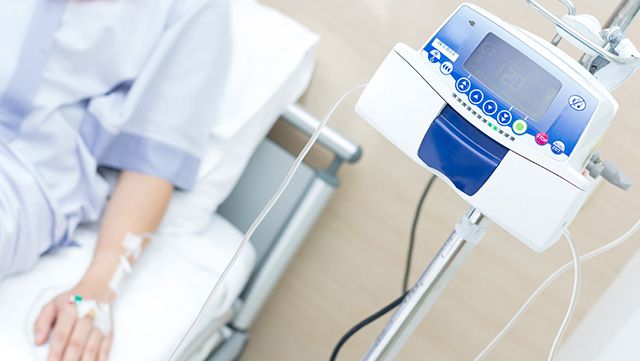Chemotherapy
Chemotherapy is used to destroy many different types of cancer at various stages. Chemotherapy medicines can stop cancer cells dividing and reproducing. Your healthy cells can repair the damage caused by chemotherapy, but cancer cells can't and eventually die.
It's used to treat solid tumours (cancerous lumps) affecting organs such as the breast or bowel, as well as blood cancers such as leukaemia.
It can be used on its own or alongside other treatments such as radiotherapy, surgery or hormonal, biological and immune therapies. You may have chemotherapy to:
- shrink a cancer before surgery or radiotherapy
- stop a cancer coming back after surgery or radiotherapy
- treat a cancer on its own, for example some cancers are very sensitive to chemotherapy
- treat cancer that has spread from where it first started
The type of chemotherapy medicine you have will depend on a number of factors including:
- the type of cancer
- where the cancer started
- what the cancer cells look like under a microscope
- whether the cancer has spread to other parts of your body
- your general health
